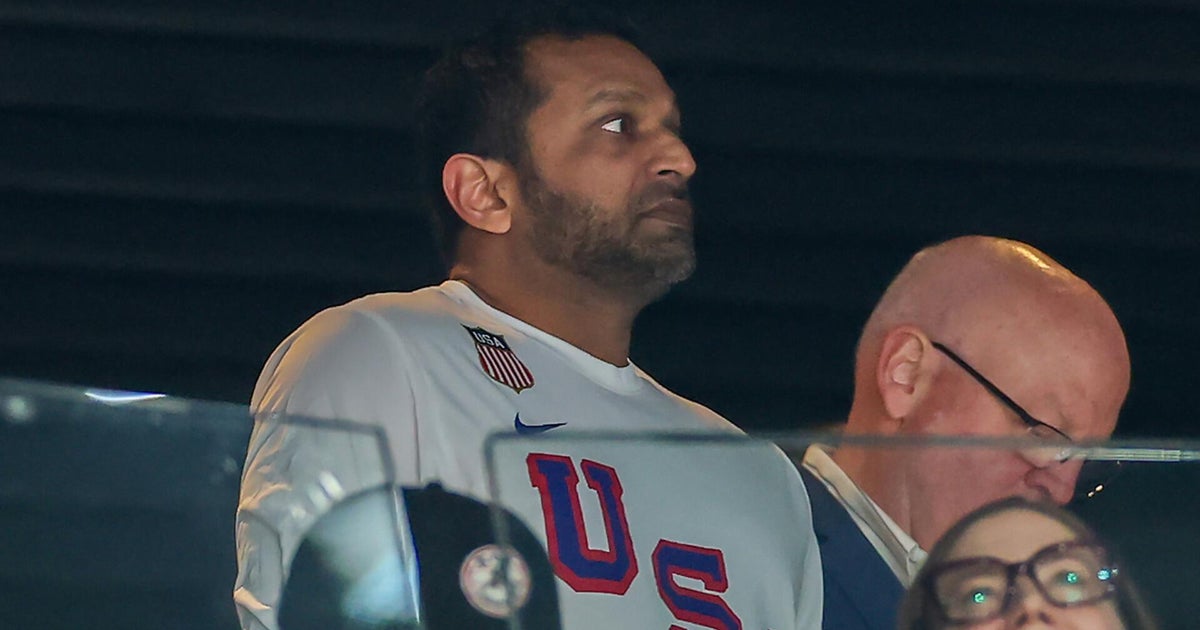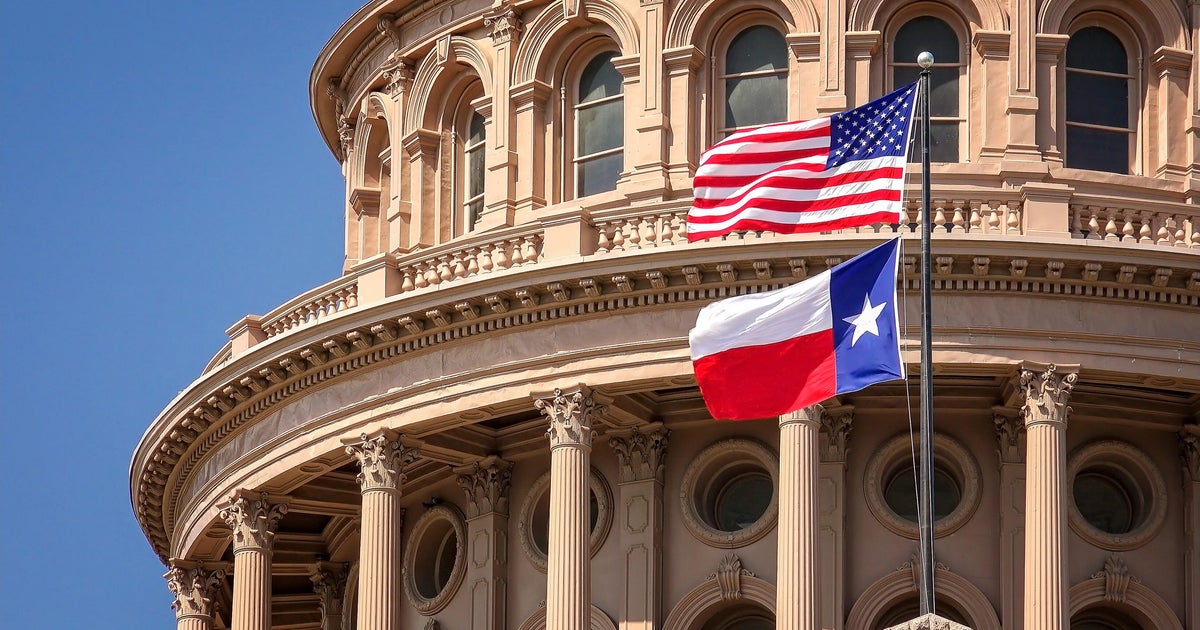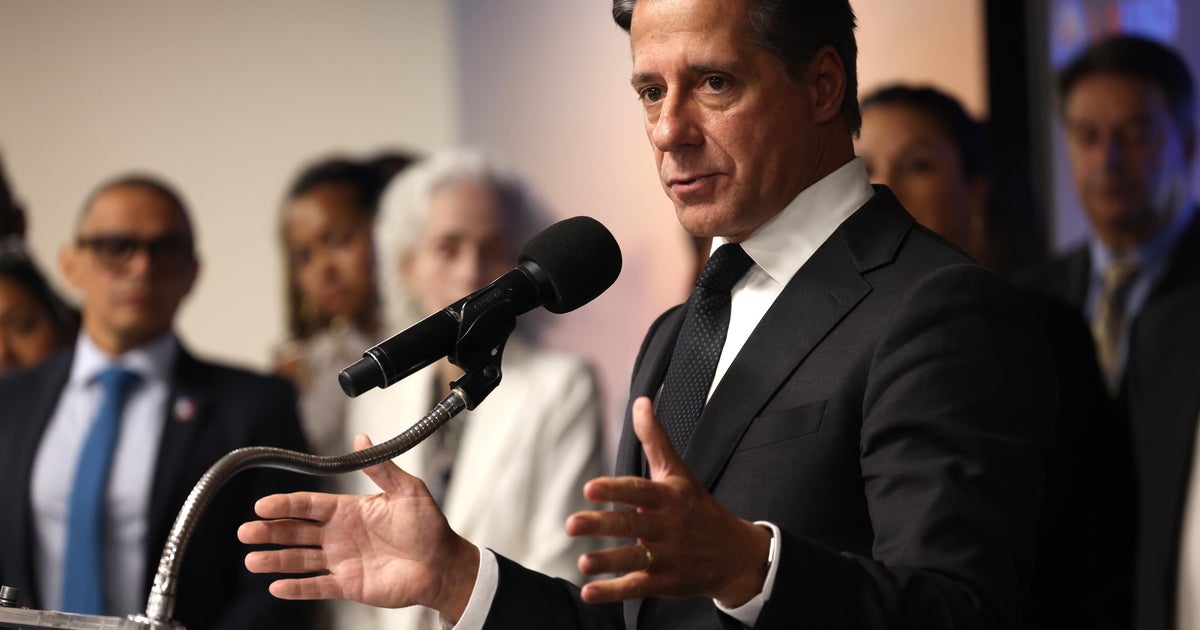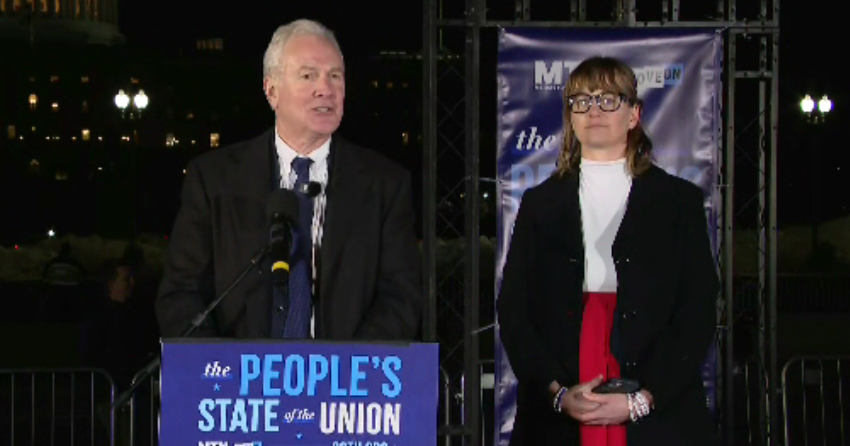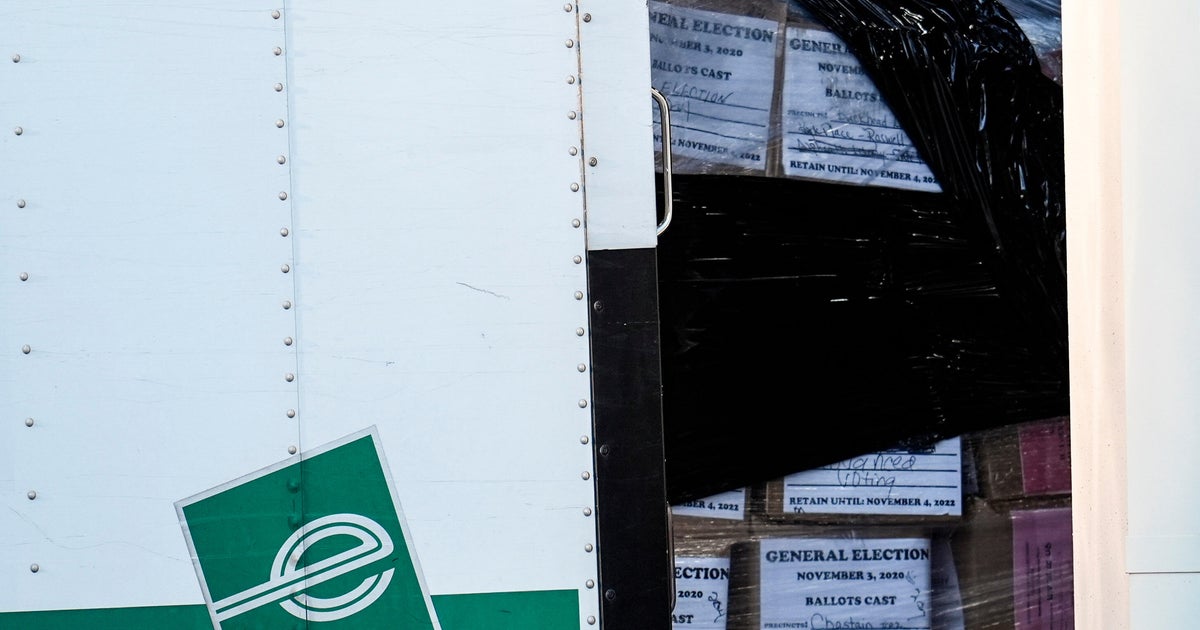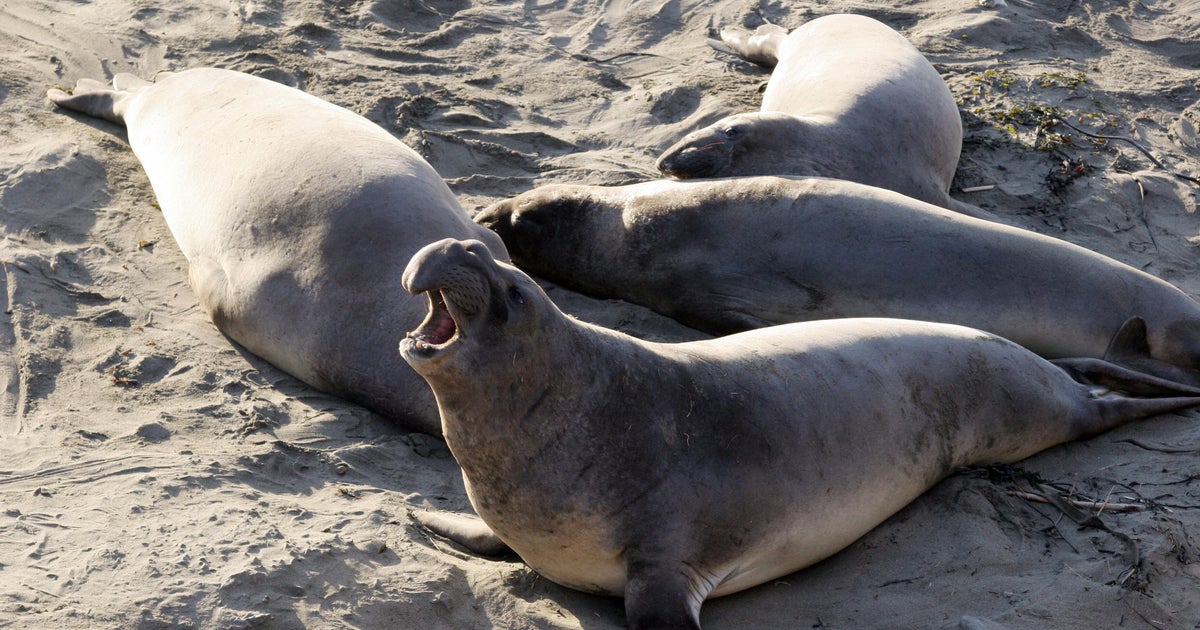California Senators Grill Attorney General Barr At Senate Testimony
SAN FRANCISCO (KPIX 5) -- Both of California's Senators are on the Senate Judiciary Committee, which questioned Attorney General William Barr on Wednesday. The highest ranking Democrat on the committee is Sen. Dianne Feinstein (D-CA) and the least-senior member is Sen. Kamala Harris (D-CA).
Feinstein was the first Democrat to question Barr, and she zeroed in on President Trump's interactions with former White House Counsel Don McGahn.
"The Special Counsel's report describes how the President directed White House Counsel Don McGahn to fire Special Counsel Mueller and later told McGahn to write a letter 'for our records' stating that the President had not ordered him to fire Mueller," began Feinstein.
"The report also recounts how the President made repeated efforts to get McGahn to change his story."
According to the report, Trump and McGahn disagreed on whether Trump ordered McGahn to fire Mueller. After McGahn twice refused to issue a public statement denying he was told to fire Mueller, he and Trump met in the Oval Office on February 6, 2017.
There, the President denied ever using the word "fire" and said that in two phone calls on June 17, 2017, he "merely wanted McGahn to raise the conflicts issue with [Rod] Rosenstein and leave it to him to decide what to do." McGahn said "he did not understand the conversation that way and instead heard, 'Call Rod. There are conflicts. Mueller has to go.'" (Mueller Report, vol. 2, page 117.)
McGahn again refused to make a statement contrary to his understanding of the President's direction to fire Mueller.
"Does existing law prohibit efforts to get a witness to lie to say something the witness believes is false?" asked Feinstein.
"Yes," Barr responded. He then added, "Lie to the government, yes."
"And what law is that?"
"Obstruction statutes."
Feinstein pointed to the Mueller Report's findings that (1) McGahn was a credible witness with no motive to lie, and (2) that there is substantial evidence to suggest that the President's repeated requests for McGahn to change his story were done "in order to deflect or prevent further scrutiny of the President's conduct toward the investigation." (As opposed to just being worried about bad press.) (Mueller Report, vol. 2, page 120.)
"Is that a credible charge under the obstruction statute?" she asked.
Barr said that there is debate between Trump and McGahn over what the President meant when instructing McGahn to call Rod Rosenstein, but neither man contends that the President said to "fire Mueller" which was what the New York Times reported on January 25, 2018.
Barr explained his thinking. "There's something very different between firing a Special Counsel outright, which suggest ending the investigation, and having a Special Counsel removed for conflict, which suggests that you're gonna have another Special Counsel," he said.
Also, there is evidence that the President really wanted to correct the NYT article. "So, we believe it would be impossible for the government to establish beyond a reasonable doubt that the President understood that he was instructing McGahn to say something false," Trump said.
He added that McGahn had already given testimony to the Special Counsel weeks prior to the President's requests for public statements, and the President knew that was the case.
"You have a situation where a president essentially tries to change the lawyers account in order to prevent further criticism of himself," Feinstein said.
"Well, that's not a crime," replied Barr.
"So," said Feinstein, "you can, in this situation, instruct someone to lie?"
"To be obstruction of justice, the lie has to be tied to impairing the evidence in a particular proceeding," said Barr. Then he repeated his arguments that McGahn had already testified and the President arguably wanted to rebut media reports that he told McGahn to fire Mueller.
Note that the Mueller report states that McGahn's involvement in the special counsel investigation may not have been over; he had "repeatedly spoken to investigators and the obstruction inquiry was not complete, it was foreseeable that he would be interviewed again on obstruction-related topics."
Further, the President's last request that McGahn issue a "correction" was on February 6, 2018, "approximately ten days after the stories had come out – well past the typical time to issue a correction for a news story" which "indicated the President was not focused solely on a press strategy, but instead likely contemplated the ongoing investigation and any proceedings arising from it." (Mueller Report, vol. 2, page 119-120.)
Barr went on to say, "As a matter of law, I think the Department's position would be that the President can direct the termination or the replacement of a special counsel, and as a matter of law, the obstruction statute does not reach that conduct."
But even if the obstruction law did apply, the fact the there was no underlying crime of collusion or cooperation with Russians means that getting rid of the Special Counsel was not obstruction.
"If the President is being falsely accused, which the evidence now suggests that the accusations against him were false, and he knew they were false, and he felt this investigation was unfair, propelled by his political opponents and was hampering his ability to govern that is not a corrupt motive for replacing an independent counsel."
Later, Senator Kamala Harris pressed Barr on whether "the President or anyone at the White House ever asked or suggested that you open an investigation of anyone?"
First, Barr asked Harris to repeat the question, then after she did, he said, "I'm trying to grapple with the word 'suggest' there have been matters out there, they have not asked me to open an investigation, but…"
After some back and forth, Harris said, "You don't know. Okay."
She then read from Barr's March 24, 2019 letter stating, "After reviewing the special counsel's final report, Deputy Attorney General Rosenstein and I have concluded that the evidence is not sufficient to establish that the President committed an obstruction of justice offense."
Noting that the report relied on numerous documents that include memos, notes, summaries, letters and emails, she asked, "In reaching your conclusion, did you personally review all of the underlying evidence?"
Barr said he had not, and he did not believe Rosenstein had either. "We accepted the statements in the report as the factual record, we did not go underneath it to see whether or not it was accurate. We accepted it as accurate." He said, "This is not a mysterious process" as the DOJ uses memos to determine prosecution decisions "every day."
Harris asked Barr to consult with DOJ ethics experts to determine whether he should be recused from the 14 remaining criminal cases related to the Mueller investigation. She said he has a conflict of interest.
"What's my conflict of interest?," he asked.
"I think the American public has seen quite well that you are biased in this situation and you've not been objective. And that would arguably be the conflict of interest," Harris said.
"Well you know I haven't been the only decision-maker," reported Barr. He then referred to the numerous senior DOJ attorneys involved in his decisions, including Deputy Attorney General Rod Rosenstein.
Harris said she was glad to talk about Rosenstein and asked if Barr had sought guidance from DOJ ethics experts as to whether Rosenstein should have helped Barr in the process of deciding whether the President should be charged with obstruction when he is also a potential witness in the case. (Presumably, Rosenstein is a witness in the circumstances surrounding the termination of then-FBI Director James Comey, as there was a narrative that the firing was Rosenstein's idea.)
Barr said he assumed Rosenstein had been cleared to participate in the investigation because the Senate had confirmed to be the Acting Attorney General. "I am informed that before I arrived, he had been cleared by the ethics officials."
"Of what?" asked Harris.
"Of serving as Acting Attorney General on the Mueller case," Barr said.
"How about making a charging decision on obstruction of justice, the underlying offenses which include him as a witness?" asked Harris.
"That is what the Acting Attorney General's job is," Barr said.
"To be a witness and to make the decision about being a prosecutor?" asked Harris.
"No, but to make charging decisions," Barr said.
"I have nothing else, my time has run out," said Harris.
Later in the hallway, Senator Harris told reporters, "This attorney general lacks all credibility. And has, I think, compromised the American public's ability to believe that he is a purveyor or justice."
"Should he resign?" asked a reporter.
"Yes."
